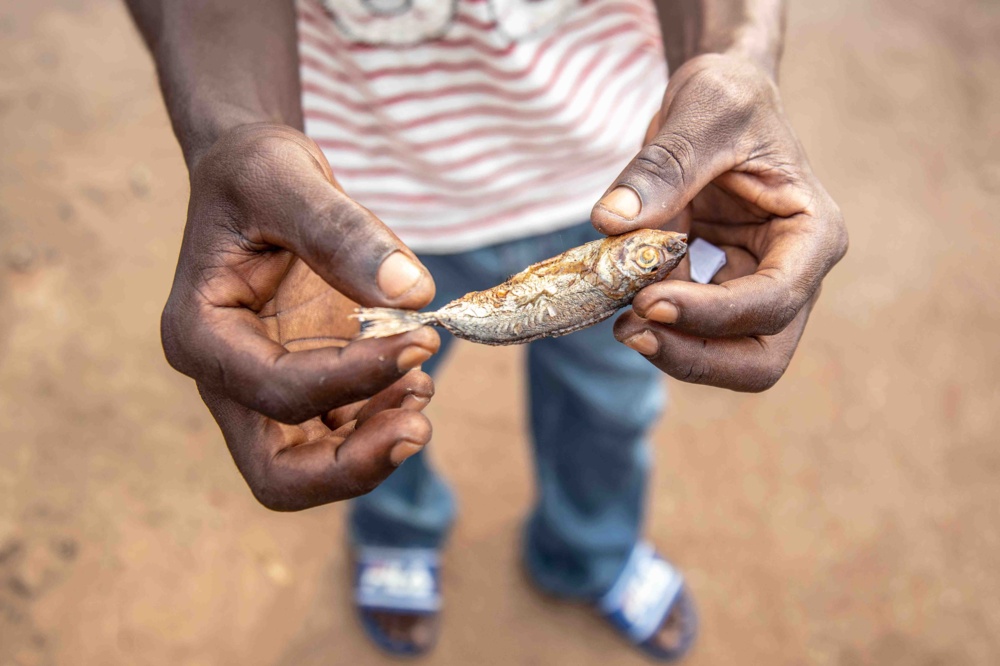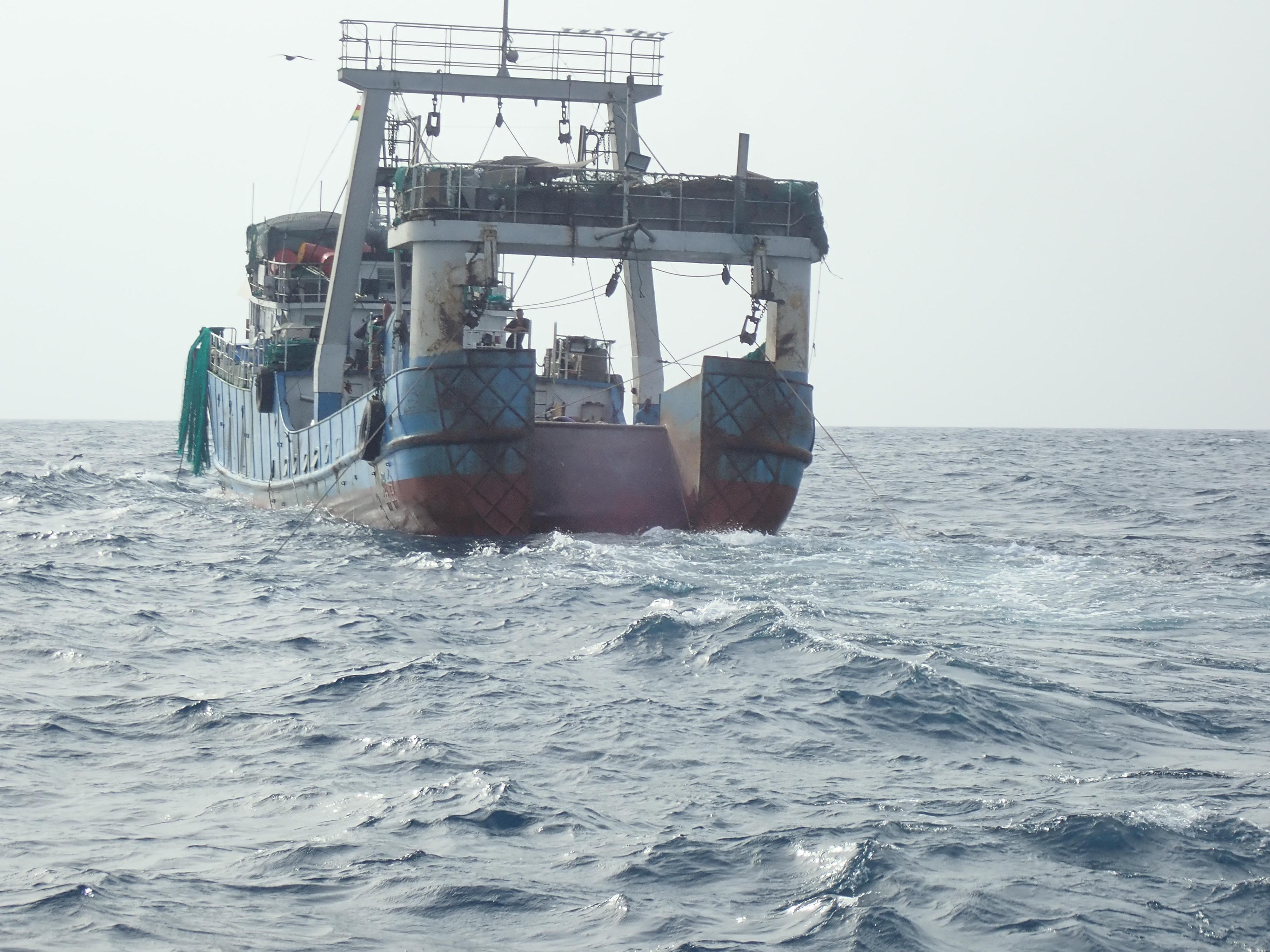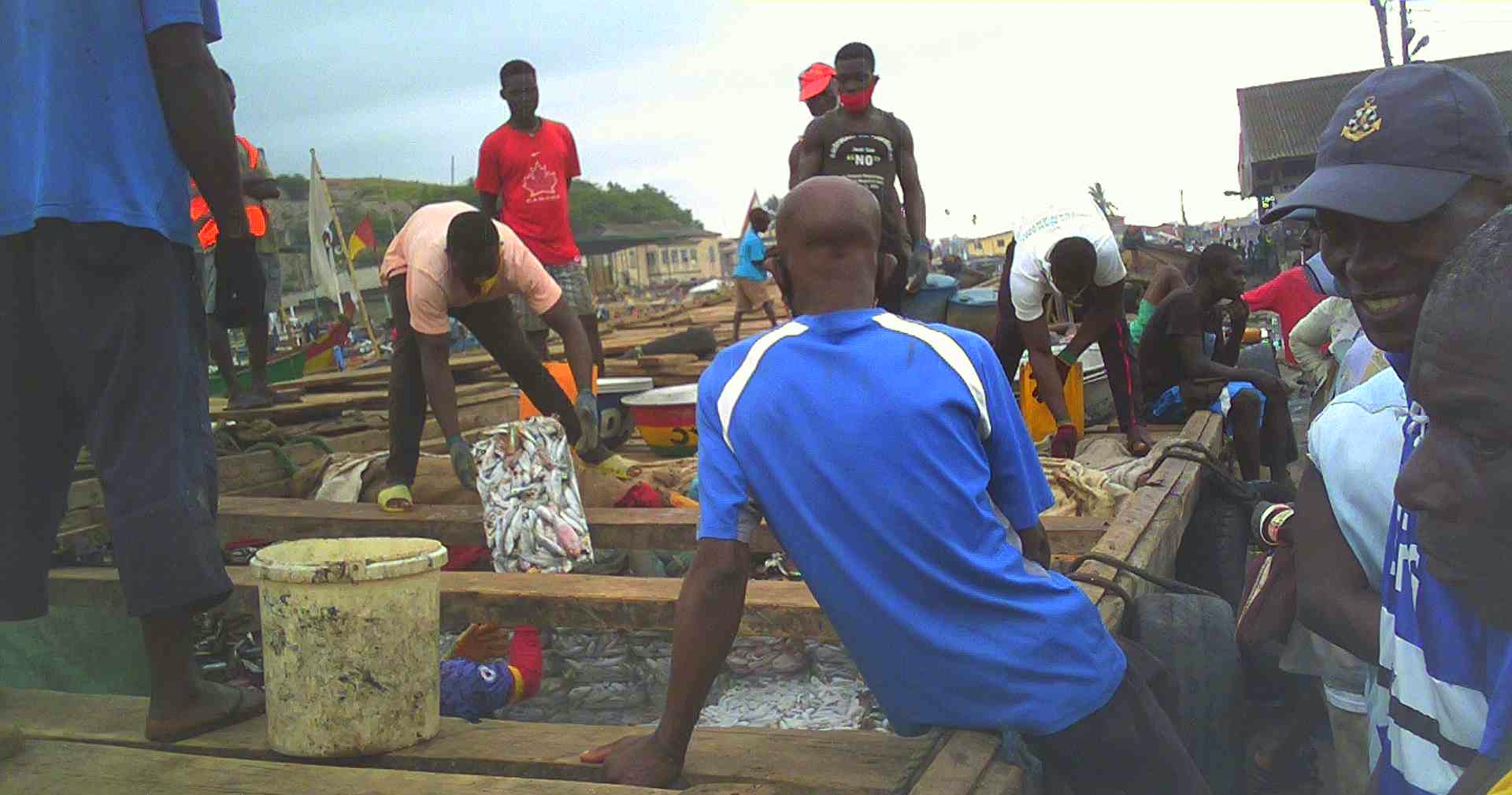
Chinese-owned trawler in Ghana re-licensed despite illegal fishing and unpaid fine
A Chinese-owned trawler has been re-licensed to fish in Ghana, despite being caught for illegal fishing twice and failing to pay its fine. In June 2019, the Lu Rong Yuan Yu 956 was apprehended in Ghanaian waters with illegal nets and undersized ‘small pelagic’ fish on board – the staple catch of canoe fishers. The full fine of US$ 1 million was issued, but the vessel owners refused to pay: in May 2020, the vessel was caught again for almost identical offences. Despite this clear track record of illegality, the vessel has now been licensed to fish again while it awaits a further hearing.
The Lu Rong Yuan Yu 956, which is operated by the Chinese company Rongcheng Ocean Fishery Co Ltd, was apprehended twice, in 2019 and 2020, for using nets with a mesh size below the legal minimum and taking fish smaller than legal landing size.
The use of illegal nets is often associated with the damaging practice of saiko, as trawlers use them to illegally target the main catch of canoe fishers – small pelagic fish, also known as the ‘people’s fish’. This vessel was authorised to catch bottom-dwelling species, and should not have been targeting small pelagic species, yet significant quantities were found on board.
These illegal practices are having a devastating effect on ocean ecosystems, with landings of sardinella in Ghana having crashed by 80% over the past twenty years. These species are also a mainstay of canoe fishers, providing vital income and food security for over 2.7 million people.
Under international law, Ghana has a responsibility to establish and implement a system of deterrent sanctions that deprives offenders of the benefits gained from their illegal fishing activities. This vessel simply refused to comply with the sanction it was given, and was caught again for the same illegal fishing offenses. Clearly the owners were undeterred.
West Africa has seen an influx of vessels from China in recent months, including into Ghana, Senegal and Liberia. In Ghana, around 90% of Ghana’s industrial fishing fleet is linked to Chinese ownership, in Sierra Leone, this figure stands at 75% of industrial vessels. New vessels continue to arrive in Ghana from China in spite of a government moratorium on the issuance of new licences in place since 2012.
Both China and Ghana can secure wide-ranging economic and environmental benefits by making an active commitment to transparency. To do this, lists of all distant water fishing authorisations and fishing vessels licensed to fish under Chinese flags should be published online, along with details of all cases of illegal fishing and the sanctions imposed. This should include the withdrawal of state subsidies and distant water fishing authorisations for any vessel found to have engaged in illegal fishing, including Chinese vessels operating under local flags such as Ghana.
Ultimately, no one wins if we exploit our oceans to the point where fish populations collapse. To safeguard both marine ecosystems and the livelihoods of fishers, China and Ghana must work together to prevent cases like this from happening again. All cases of illegal fishing in Ghana must be treated rigorously, with sanctions severe enough to be deterrent, and full transparency regarding how the process is conducted. Eradicating illegal fishing is eminently achievable and benefits us all.
SIGN UP FOR OUR EMAILS AND STAY UP TO DATE WITH EJF

